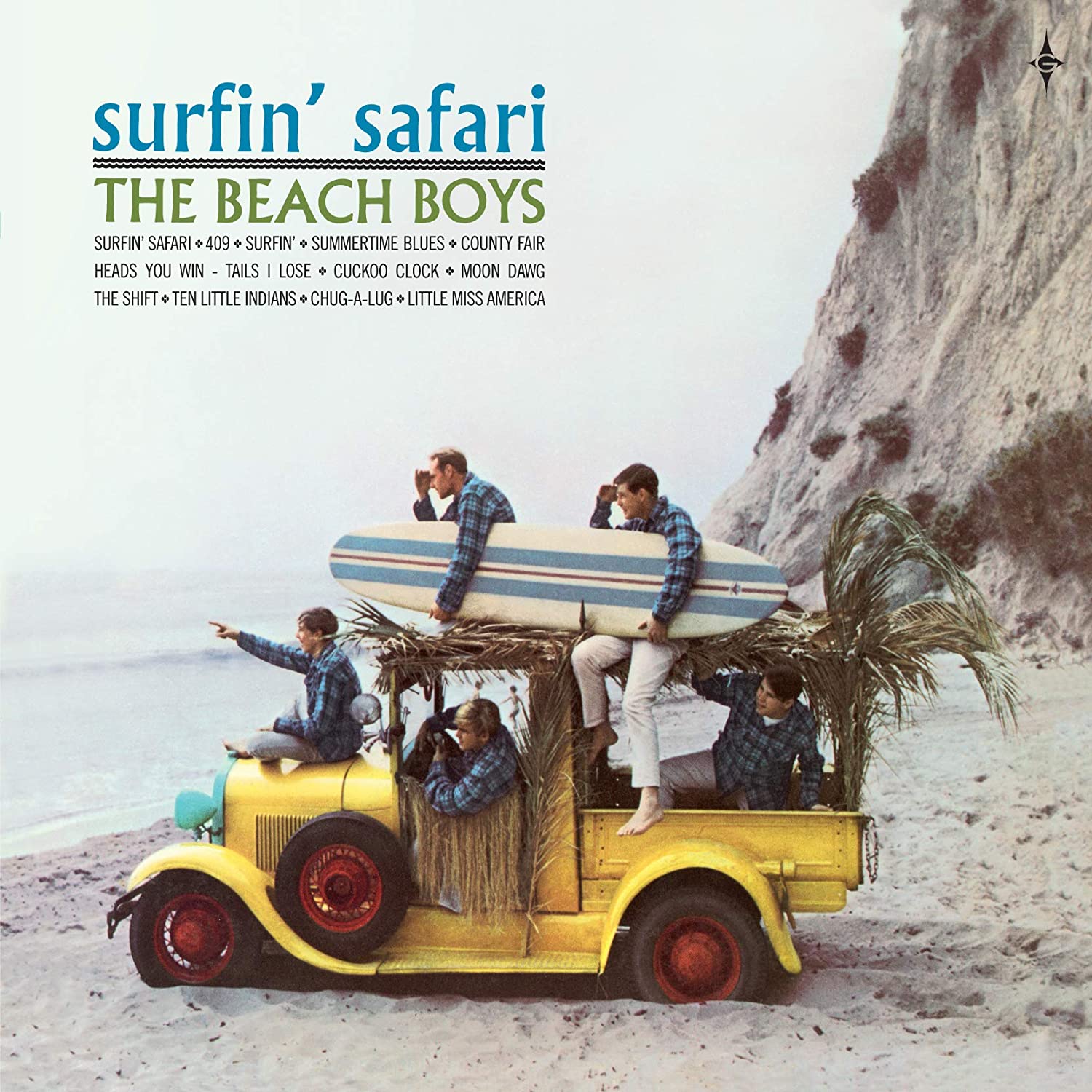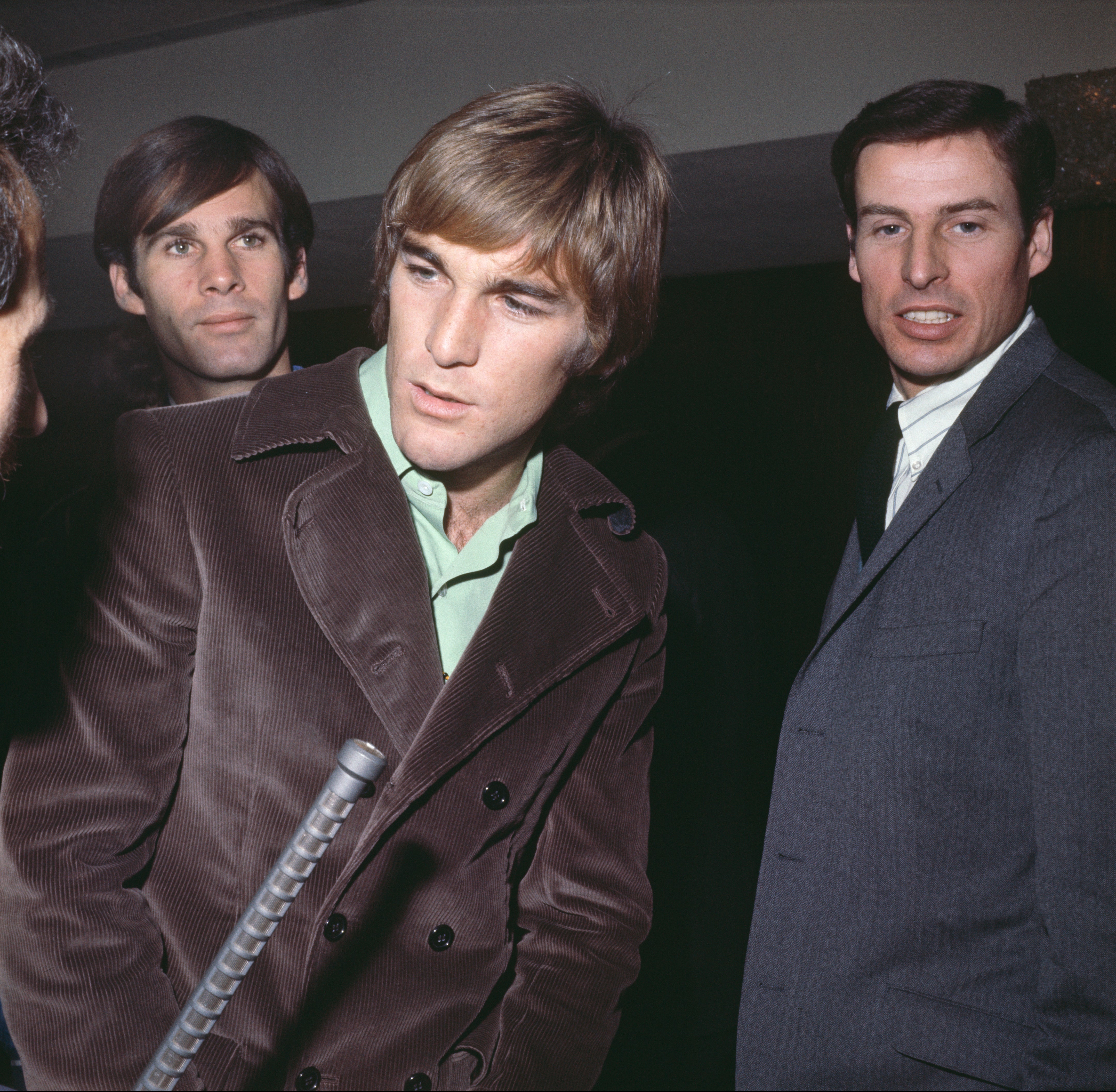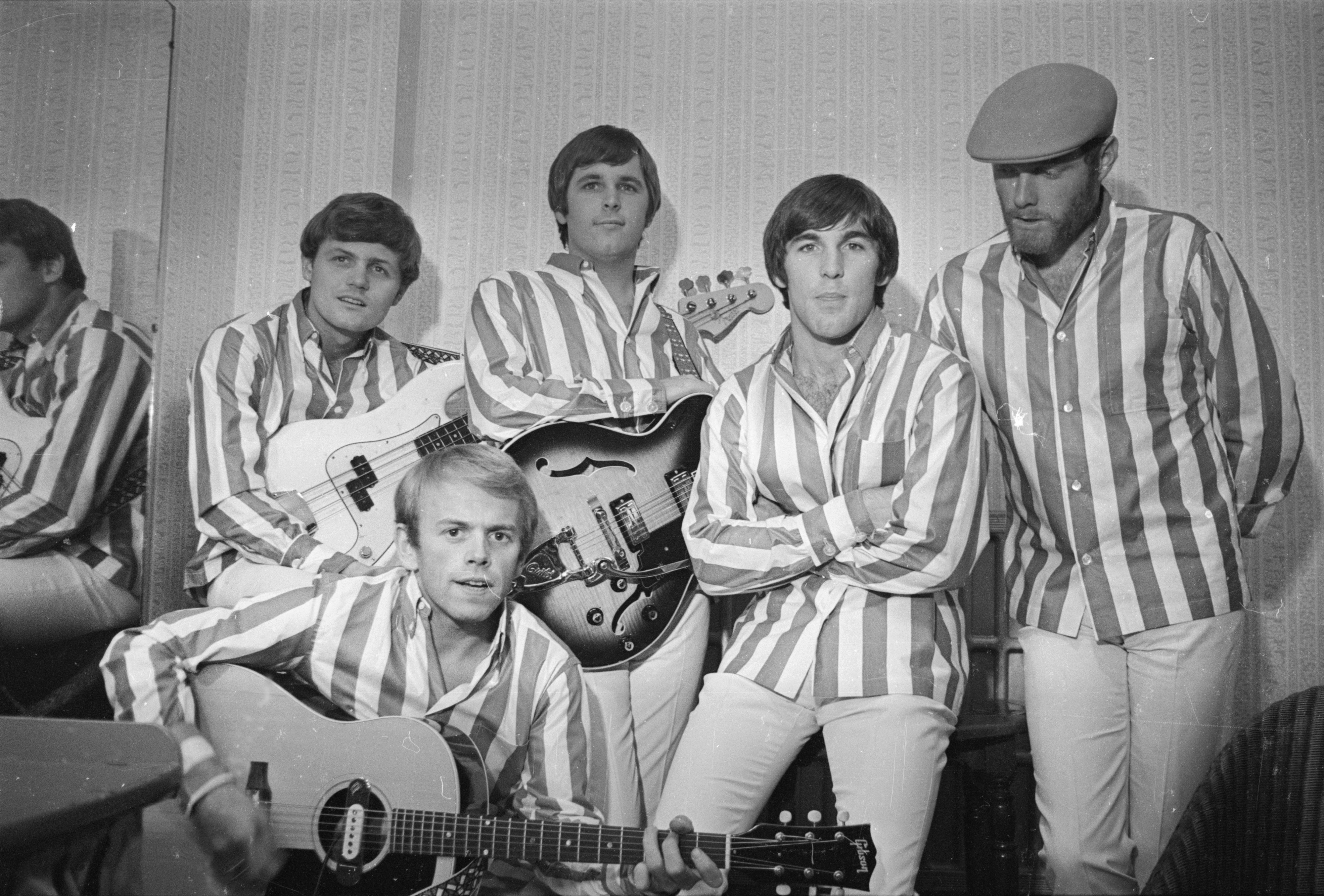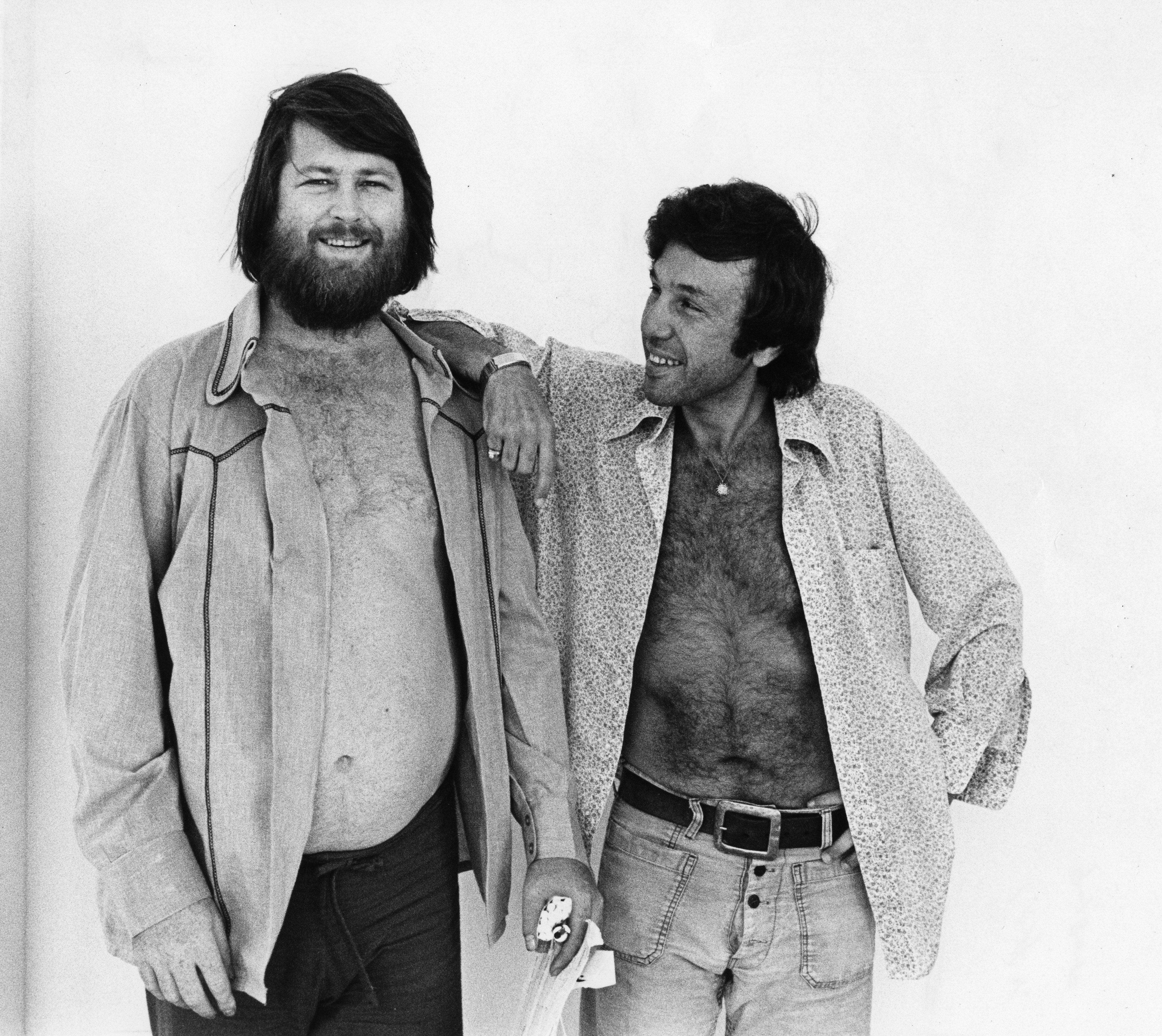Good vibrations? This is the real story of the Beach Boys
Musically, few could touch the harmonies of the surfing rockers, but after the late 1960s the story of the band is far less glamorous. David Lister tells the tale of their collapse


It’s been 60 years since one of the greatest groups in pop history released their debut album. In 1962, The Beach Boys released Surfin’ Safari, its cover showing the group with their surfboards on the way to the beach for an afternoon of innocent fun. Musically, few could touch the rich harmonies of the band when they were allied to the compositions and arrangements of their most talented member, Brian Wilson, the composer of such timeless classics as “Good Vibrations” and “God Only Knows”.
Along with brothers Carl and Dennis, cousin Mike Love, and boyhood friend Alan Jardine, Brian and the band sold more than 75 million records and conveyed an atmosphere, not just of sun, sea, surf and sand, but also of pure innocence, borrowing daddy’s car and cruising past the hamburger stand to have “Fun, Fun, Fun”. Innocence was the quality that epitomised 1962 in both the US and UK, before the Sixties became more complex.
Fast forward six years to 1968. The Beach Boys were outwardly unchanged, still scoring hit after hit with their close and complex harmonies and infectious melodies, and still exuding that air of innocence. One of their hits that year was a smart take on the 1950s song “Bluebirds over the Mountain”. But turn that record over and on the B side you will find one of the band’s more obscure ditties, “Never Learn Not to Love”, which was a tweaked version of a song called “Cease to Exist” written by one of Dennis’s close buddies – Charles Manson.
Dennis – always the wildest Beach Boy – had met Manson and his “family” of killers in Los Angeles and had allowed him and 20 female friends to stay in his Sunset Boulevard mansion. Mike Love once went there for dinner and was shocked to find all 20 house guests naked. It was not just excessive drug taking that took place, but also masses of group sex. Such orgiastic happenings had their consequences. But Wilson, who called Manson “the wizard”, and let him have a recording session on The Beach Boys’ record label, was also generous with the use of his car and wallet. He drove his house guests to the gonorrhoea clinic and paid for their treatment. In the days and weeks leading up to that, the “family” had spent $100,000 of Dennis’s money and wrecked his $21,000 uninsured Mercedes.

A year later the true face of the Manson family became known worldwide with the sickening slaughter of Roman Polanski’s wife Sharon Tate and her friends in a rented Los Angeles house, 10050 Cielo Drive. Manson had directed the family to the house. But he didn’t know it was now the residence of the Polanskis. Manson was out for revenge on the music producer Terry Melcher. Melcher, the son of film star Doris Day, had thwarted Manson’s desire to be a rock’n’roll star, because he knew Manson wasn’t good enough and was also freaked out by his intense stare. And how did Manson meet Melcher in the first place? He was introduced to him by Dennis Wilson.
The Manson connection is just one, albeit the most grotesque, of the scandals and tragedies that belied the Beach Boys’ carefree sun and surf image. Indeed, one tragedy was that of Dennis himself. The Beach Boys drummer was a keen surfer, a lover of the water, a proficient swimmer and sailor with his own yacht. Yet he drowned in the waters of Marina del Rey at the age of 39. Wilson could be a romantic. He had a three-year relationship with Fleetwood Mac’s Christine McVie and on one of her birthdays hired a symphony orchestra to help him serenade her. But he was also an alcoholic, drug abuser and womaniser.
Brian cut a fragile, troubled figure, helped by one of his bandmates across the stage to the piano, but it was hard to take your eyes off him
On Christmas Day 1983, he had been in a fight with his estranged wife’s 19-year-old friend. On the afternoon of 28 December, full of wine and vodka, he decided, bizarrely, to dive into the murky waters to recover some of his ex-wife’s belongings, which had been thrown over the side of his yacht in an argument during their divorce three years earlier.
Dennis was a particularly troubled and disturbed soul, and significantly Mike Love, and others, have speculated that guilt over his association with Manson was a key cause of this.
Dennis’s death hit the rest of the band, and, in particular, his brothers, very hard. And in 1998, Carl, the sweet, dreamy voice on “God Only Knows”, died of lung cancer, aged 51. He had been a smoker since his teens, and in adult life became the most spiritual member of the Beach Boys. Indeed, prayer sessions took place before recordings of their albums, including their most famous one, Pet Sounds, in the quest for spiritual guidance for their music. Carl, who played the famous guitar intro on the band’s signature song “California Girls”, became an ordained minister in the Movement of Spiritual Inner Awareness.

In the last couple of decades, the sole surviving Wilson brother, Brian, made an unexpected comeback after years of troubles and toured with a supremely talented Beach Boys tribute band, delivering stunningly good performances. Brian cut a fragile, troubled figure, helped by one of his bandmates across the stage to the piano, but it was hard to take your eyes off him, with a mixture of awe of his genius and concern that he might not make it to the end of the show. I saw every show he gave in London, and I particularly remember his tributes to his two younger brothers. He dedicated one song to Dennis, who, he told the audience, simply, had died, and one to Carl, saying quietly, almost to himself, “he also died”. Brian’s mournful look, and subdued tone seemed to imply that those long past sadnesses still touched him.
And it is Brian Wilson, whose story encapsulates most of all the stark contrast between the Beach Boys’ image and their reality. In his 2016 autobiography, I Am Brian Wilson, Brian relates how he was abused by his father, Murry, a songwriter, music producer and talent manager. Murry was a strict disciplinarian who was also a driving force behind the band in its early days. He was the band’s manager until they sacked him in 1964. One biographer of Brian wrote that Murry once hit Brian with a piece of wood, causing him to lose hearing in his right ear, and once as a punishment made him defecate on a plate.

But Brian’s own book shows that that may be a distortion, even though his father was clearly tyrannical. Brian wrote:
My dad was violent. He was cruel. He drank too much and became a monster – and he didn’t know how to deal with his son’s fears. Whenever I got afraid, he would yell at me or slap me or call me a pussy. He'd slap the boys across the face again and again and again. When he didn't put his hands on us, he tried to scare us in other ways. He would take out his glass eye and make us look into the space where the eye used to be. [...] Sometimes I provoked my dad. Once I took a shit on a plate and brought it to my dad. “Here's your lunch,” I said. He was sitting down with his pipe in his mouth. “Get in the bathroom,” he said. Then he came in and whipped the hell out of me. I was bringing the plate to him because of the times I didn’t deserve. There were hundreds of those times, at least.
In recent years, in the manner of superstar rock bands, founding members have fallen out. Brian Wilson and Mike Love have fought legal battles over royalties and even who can use the band’s name
Brian, who had been experiencing hallucinations as well as panic attacks on aeroplanes, and was later to be diagnosed with schizophrenia, had a mental breakdown as early as 1965 and stopped touring with the band, even though he continued to write, play on, and produce their biggest hits, and their best album Pet Sounds. Brian himself has dated his hearing of voices to his first experience of LSD when he was 22. In 1966, he had a sandbox installed in his dining room to remind him of the beach and inspire his composing. A grand piano was placed inside the sandbox. Brian’s weight ballooned, at one point hitting 22st, and he spent inordinate amounts of time in bed.

And then, in the mid-1970s, a strange, influential and arguably extremely damaging Svengali figure entered his life; Eugene Landy. Dr Landy was a psychotherapist who had previously treated musician Alice Cooper and actor Richard Harris and practised what he called “24-hour therapy”. This involved having almost total power over his patient and vetting who could and could not visit them. Added to that, the “therapy” also involved Landy being Brian’s executive producer, co-songwriter and claiming 25 per cent copyright of his songs.
The pair had a fist fight when Brian discovered what Landy was charging for his treatment. By Landy’s own estimation between 1983 and 1991 Brian had paid him $3m. Landy was also living in Brian’s house. Landy kept Brian on medication, which he called “vitamins” and ensured his patient was dependent on him. Landy was hired, fired then after a gap of some years hired again and not dispensed with until the early 1990s, when Brian had to obtain a restraining order to keep him away. The final parting came after he and some associates took Brian to a Cadillac showroom to buy a car. Brian did buy one, but also handed the saleswoman, Melinda Ledbetter, a card which said, “lonely, scared and frightened”. Melinda was to become Brian’s second wife and bring him much-needed stability.

In recent years, in the manner of superstar rock bands, founding members have fallen out. Brian Wilson and Mike Love have fought legal battles over royalties and who can use the band’s name. Indeed, there have been times when at least three members of the original outfit were touring as the true purveyors of Beach Boys’ material.
The sunny, happy image of those early days seems a distant memory, though even now one can see a Beach Boys show in which the septuagenarian and octogenarian performers are still wearing their beach wear on stage.
But was that original image ever true, even back in 1962? Look again at the cover photograph of that debut album: the five Beach Boys with their surfboards, ready for action in the water, ready also to introduce the culture of surfing on sunny Californian beaches to envious adolescents all over the world, and to extol its thrills in some of their most famous songs. But the truth once again belied the image. Of the whole band, only Dennis knew how to surf. And Brian? Not only could he not surf, he was afraid of the water.




Join our commenting forum
Join thought-provoking conversations, follow other Independent readers and see their replies
Comments